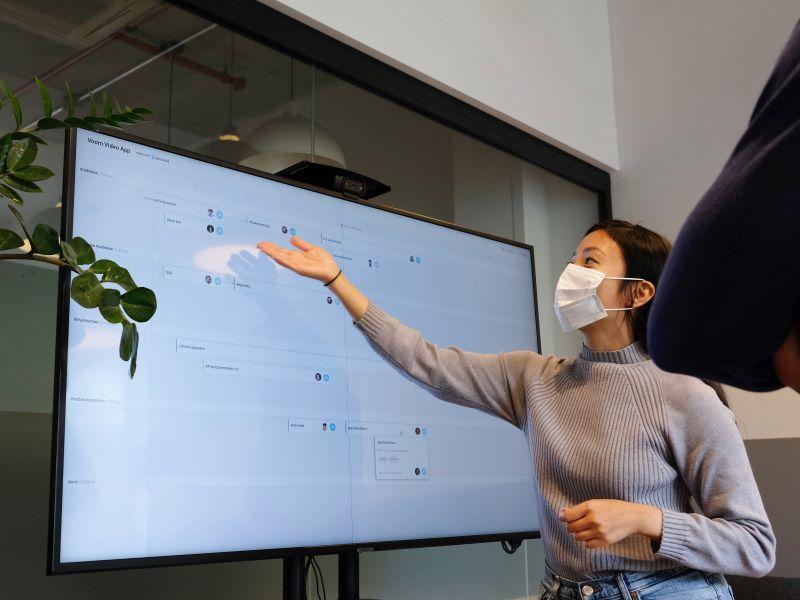
How to refine, enrich and expand research through teaching practices
Adrian Lam offers tips on how academics can use their teaching to refine, enrich and expand their research methods

Many academics bring their valuable research into the classroom. The challenge is for them to frame and communicate their findings, ideas or even professional practices in a format that is accessible to students as non-experts. But if they succeed in doing this, the contribution from a diverse study body through the teaching process can broaden, enrich, stimulate and further inform the research.
The following tips are designed to help academics bring their research into the classroom order to boost the learning experience and also to improve their own work:
1. Highlight the universal values of research
The classroom is an ideal setting to shed light on the theoretical implications and practical benefits of detailed research projects. Teaching allows academics to illustrate why their highly specialised work has significance to broader society and why students and citizens should care about it.
For instance, in my study comparing the effect of political trust in Hong Kong and Singapore, as two hybrid regimes, in coping with the pandemic, I argue that long-term citizens, who have resided in the areas for some time before the Covid outbreak, generally have greater discontent towards government. This is expressed through their non-compliance with policies and measures, which hinder the effectiveness of pandemic control. Using the public health crisis as an entry point, this evidence-based study allows me to shed light on the dynamic interplay between the government and citizens, as well as essential governance qualities that help to maintain long-term development of regimes.
Academics should strive to present or adapt their specialised knowledge so it can be applicable to everyday situations. They should try to extract the academic concepts and technical language from the research papers and journals and contextualise them in a way that is accessible and relevant to students.
2. Present a strong research case
Present your research projects as a whole in a way that flows seamlessly, from the initial challenge or question posed, to the set-up, design, implementation and results. Create a clear narrative around the project that makes it easy for your students to follow each step and the reasoning behind it. This process will help you improve the clarity, strength and logic of your research case and conclusions.
Academics are often guilty of weighing down their arguments with too much jargon and specialised terminology, which can mean students disengage. Keep your language simple, minimising technical terms, as if presenting to a general audience. Communicating complex ideas and concepts clearly and concisely is a challenge, but doing so is a useful exercise that will help you organise and streamline thoughts – and hone your communication skills.
For a research project comparing high-performing learning systems around the world, I am carrying out a comprehensive review of Hong Kong’s learning system, which involves changes and continuities over decades, as well dozens of interrelated influencing factors. The challenge is how to maintain a balance between breadth and depth. In the classroom, I need to introduce the system to those without prior knowledge as well as providing new perspectives for those who are highly familiar with the system. This preparation is an opportunity to revisit competing threads and clarify my thoughts.
3. Connect the dots within your discipline
Effective teaching requires clear articulation of how different areas and topics within a discipline are interconnected. To achieve this when teaching a curriculum, academics need to step back from their specialised focus and recontextualise their knowledge within a wider scope. While research can have a particular focus, the learning experience for students should remain broad and comprehensive.
This leaves academics with no room for cutting corners as they must stay abreast of developments beyond their immediate study focus and ensure their relevance in the related fields. Academics need to prepare and collate effective illustrations and explanations that connect the dots between their research and other interrelated topics.
4. Explore the limits and possibilities of research
Class preparation can help academics improve their own understanding of the background and context of their research. It can even help link their speciality to topics and approaches that previously seemed irrelevant and show how their specific ideas fit into the larger picture. The best, most innovative ideas often emerge out of the gaps between disciplines, when academics have pushed their thinking to the fringes of their specialism where it interacts with other ideas.
It is often in the process of explaining an existing concept to others that academics realise that current approaches, theories or paradigms are insufficient or inappropriate. This can pave the way for more sophisticated studies. Academics cannot merely do it once and leave, but need to constantly reinvent their thinking so that they stay at the leading edge in their research.
When I was preparing for a class on the development of higher education, I dug into the literature and found that the current direction of higher education curriculum design was lagging behind wider societal changes, responding rather than foreseeing.
Educators should nonetheless find ways to provide students with the tools to imagine the future ever-changing world, to take current or potential problems to the extreme, and to develop and even practise solutions that might tackle those problems. This resulted in my writing a paper about how the higher education sector should contribute to forward-looking curricula.
5. Use outsiders to refine research instruments and results
Expand the practice of peer review to students. Academics subject their research ideas to stringent scrutiny and public criticism from fellow scholars, so why not use the same practice within the classroom?
The scrutiny, feedback, comments, questions and critiques that students offer can be constructively critical or even novel and innovative. By responding to students’ feedback and sharing ideas for discussion, academics can sharpen new areas of enquiry, initiate untested questions, create new methodologies, identify flaws in analytical approaches, or test the reliability and validity of concepts that they are developing. All these can help academics to shape a more methodologically rigorous and theoretically sound research.
Adrian Man-Ho Lam is a course tutor in the department of politics and public administration and guest lecturer in the Faculty of Education at the University of Hong Kong.


